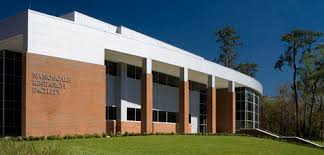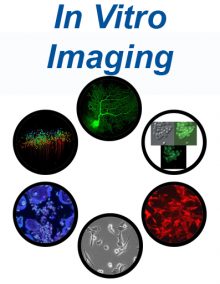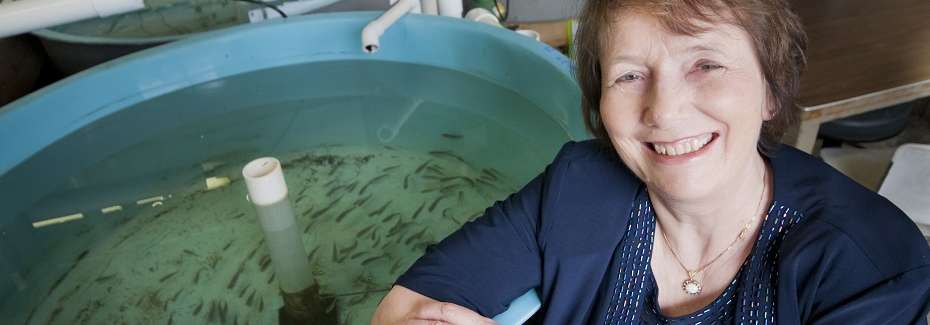Professor Faria’s Lab
Our lab will count with infrastructure to develop work in the areas of microbiology, basic materials science, and water research. One lab space will be reserved to all studies involving microbiology and preparation of nanomaterials. This wet lab is equipped with biosafety hood, centrifuges, chemical hood, autoclaves, ovens, and microscopes that will give support to students during sample preparation and analysis.
Another lab space is especially reserved to run the membrane purification systems for students working with nano and micro-filtration or desalination systems. Most of these systems will be connected to high-performance computers that will allow the students to pull and treat the data in-loco. Students also share an office space where they can have a desk to work on papers, class readings, or to keep personal belongings.
IMPORTANT FACILITIES THAT GIVE SUPPORT TO OUR WORK
 Nano-Scale Research Facility.The RSC support and enhance the research, education, and public service missions of the University of Florida by providing access to characterization and process instrumentation. Expert staff provides the assistance and guidance necessary so that students, faculty, and industry get the most effective and appropriate use of the center’s facilities. Some of the analytical techniques available are electronic microscopes (TEM. SEM), film deposition, 3D printing, photolithograhy, Raman and FT-IR spectroscopy, AFM and XPS, and X-ray analysis.
Nano-Scale Research Facility.The RSC support and enhance the research, education, and public service missions of the University of Florida by providing access to characterization and process instrumentation. Expert staff provides the assistance and guidance necessary so that students, faculty, and industry get the most effective and appropriate use of the center’s facilities. Some of the analytical techniques available are electronic microscopes (TEM. SEM), film deposition, 3D printing, photolithograhy, Raman and FT-IR spectroscopy, AFM and XPS, and X-ray analysis.
 Cell & Tissue Analysis Core (CTAC). CTAC maintains high-end instrumentation as well as standard microscopy systems for the acquisition and analysis of bright field, fluorescent, and bioluminescent data from both in vitro and in vivo experimental imaging and sample preparation. Some of the equipment available are: Upright Fluorescent Microscope, Inverted Live Cell Imaging System, Spinning Disc Confocal / Deconvolution, Flow cytometry, and Bioluminescence and Fluorescence Optical Imaging System.
Cell & Tissue Analysis Core (CTAC). CTAC maintains high-end instrumentation as well as standard microscopy systems for the acquisition and analysis of bright field, fluorescent, and bioluminescent data from both in vitro and in vivo experimental imaging and sample preparation. Some of the equipment available are: Upright Fluorescent Microscope, Inverted Live Cell Imaging System, Spinning Disc Confocal / Deconvolution, Flow cytometry, and Bioluminescence and Fluorescence Optical Imaging System.
 Center for Environmental and Human Toxicology. This center aims to study the effects of chemicals on the environment, human and animal health. The Center serves as an interface between basic research and its application for evaluation of human health and environmental risks. The research and teaching activities of the Center provide a resource for the State of Florida to identify and reduce risks associated with environmental pollution, food contamination, and workplace hazards. Development and improvement of risk assessment methods as well as toxicity testing and elucidation of mechanisms of action of chemical-induced adverse health effects are all activities of the Center that serve as resources for the State of Florida and the nation. The Analytical Toxicology Core Laboratory at the University of Florida provides comprehensive analytical support to on-campus and off-campus researchers requiring qualitative and/or quantitative chemical analysis to meet study objectives. Equipped with state-of-the-art instrumentation and staffed with personnel experienced in handling complex biological tissues, the ATCL is an available resource for method development, as well as for routine analyses which include a wide range of environmental contaminants, drugs, and other toxins from a variety of environmental and biological matrices. Among the analytical equipment are LC MS/MS and GC-MS-MS able to analyse pesticide residues, hydrocarbons, PCBs, hormones, antibiotics, food additives, and pharmaceuticals.
Center for Environmental and Human Toxicology. This center aims to study the effects of chemicals on the environment, human and animal health. The Center serves as an interface between basic research and its application for evaluation of human health and environmental risks. The research and teaching activities of the Center provide a resource for the State of Florida to identify and reduce risks associated with environmental pollution, food contamination, and workplace hazards. Development and improvement of risk assessment methods as well as toxicity testing and elucidation of mechanisms of action of chemical-induced adverse health effects are all activities of the Center that serve as resources for the State of Florida and the nation. The Analytical Toxicology Core Laboratory at the University of Florida provides comprehensive analytical support to on-campus and off-campus researchers requiring qualitative and/or quantitative chemical analysis to meet study objectives. Equipped with state-of-the-art instrumentation and staffed with personnel experienced in handling complex biological tissues, the ATCL is an available resource for method development, as well as for routine analyses which include a wide range of environmental contaminants, drugs, and other toxins from a variety of environmental and biological matrices. Among the analytical equipment are LC MS/MS and GC-MS-MS able to analyse pesticide residues, hydrocarbons, PCBs, hormones, antibiotics, food additives, and pharmaceuticals.
